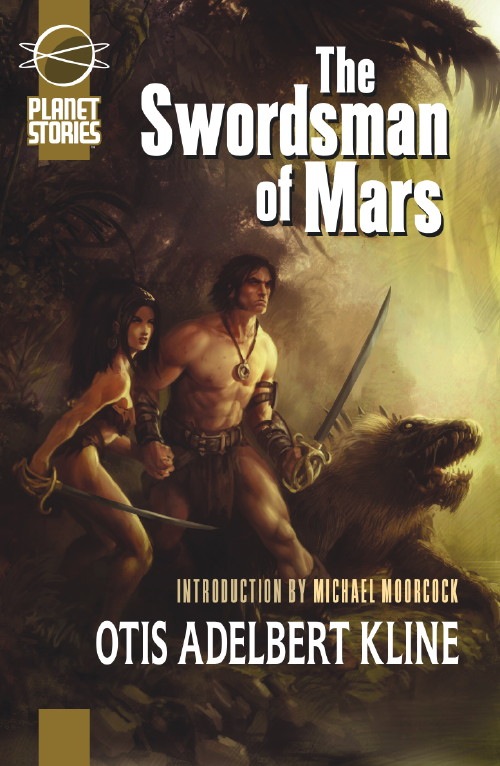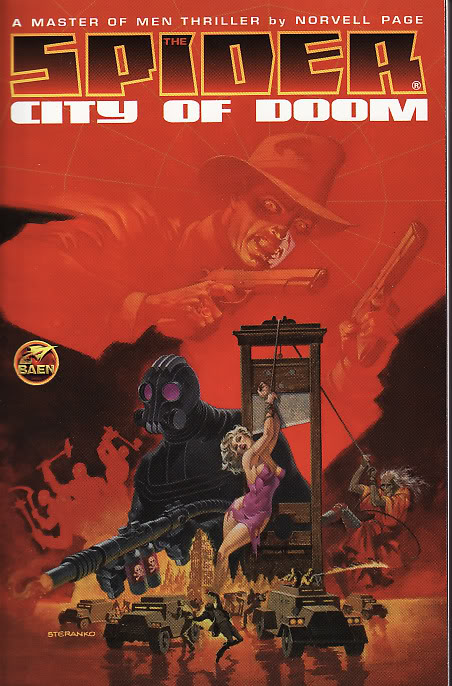Happy Birthday Michael Moorcock
 Michael Moorcock turned sixty-nine yesterday, and it’s hard to believe that this prolific, vocal, daring, and sometimes vociferous (see Wizardry & Wild Romance for an idea of what I’m talking about) Grand Master of SF is a senior citizen. Best known, of course, for the brooding albino prince Elric and his soul-hungry sword Stormbringer, Moorcock’s restless energy hasn’t confined itself to one hero, genre, or way of telling a story. So whether it’s the other aspects of the Eternal Champion such as Corum, Hawkmoon, or Von Bek adventuring through his shared worlds of the multiverse, his alternate histories like the Pyat Quartet and Nomad of the Time Streams, his experimental novels like Breakfast in the Ruins and Behold the Man, or a whole hosts of other complex and enduring novels such as Mother London and Gloriana, Moorcock has written something for everyone.
Michael Moorcock turned sixty-nine yesterday, and it’s hard to believe that this prolific, vocal, daring, and sometimes vociferous (see Wizardry & Wild Romance for an idea of what I’m talking about) Grand Master of SF is a senior citizen. Best known, of course, for the brooding albino prince Elric and his soul-hungry sword Stormbringer, Moorcock’s restless energy hasn’t confined itself to one hero, genre, or way of telling a story. So whether it’s the other aspects of the Eternal Champion such as Corum, Hawkmoon, or Von Bek adventuring through his shared worlds of the multiverse, his alternate histories like the Pyat Quartet and Nomad of the Time Streams, his experimental novels like Breakfast in the Ruins and Behold the Man, or a whole hosts of other complex and enduring novels such as Mother London and Gloriana, Moorcock has written something for everyone.
For his wide-ranging talent, refusal to play it safe with his writing, and enormous energy and imagination, Moorcock is truly one of the field’s most inspiring figures. Naturally, at Black Gate our focus is primarily on Sword & Sorcery and Heroic Fantasy, and in that field especially Moorcock stands as a giant — perhaps the last giant still among us — for his blend of old-school storytelling muscle, fertile mind, and New Wave edge. While the other aspects of the Eternal Champion may stand in the shadow of the forever-iconic Melnibonean, the entirity of Moorcock’s Sword and Sorcery oeuvre has to be seen as one of the field’s finest and most epic creations.
So happy birthday Michael Moorcock — and many happy returns!
__________
BILL WARD is a genre writer, editor, and blogger wanted across the Outer Colonies for crimes against the written word. His fiction has appeared in numerous magazines and anthologies, as well as gaming supplements and websites. He is a Contributing Editor and reviewer for Black Gate Magazine, and 423rd in line for the throne of Lost Lemuria. Read more at BILL’s blog, DEEP DOWN GENRE HOUND.

 I’ll admit to not being able to keep up with science fiction and fantasy awards, but I think the newly announced
I’ll admit to not being able to keep up with science fiction and fantasy awards, but I think the newly announced 